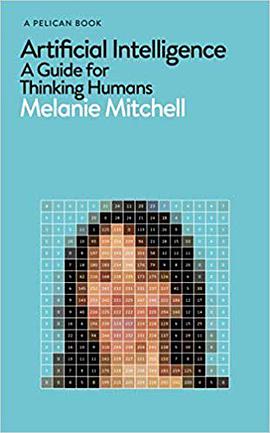Artificial Intelligence
内容简介
No recent scientific enterprise has been so alluring, terrifying, and filled with extravagant promise and frustrating setbacks as artificial intelligence. How intelligent are the best of today's AI programs? To what extent can we entrust them with decisions that affect our lives? How human-like do we expect them to become, and how soon do we need to worry about them surpassing us in most, if not all, human endeavours?
From leading AI researcher and award-winning author Melanie Mitchell comes a knowledgeable and captivating account of modern-day artificial intelligence. Flavoured with personal stories and a twist of humor, Artificial Intelligence illuminates the workings of machines that mimic human learning, perception, language, creativity and common sense. Weaving together advances in AI with cognitive science and philosophy, Mitchell probes the extent to which today's 'smart' machines can actually think or understand, and whether AI requires such elusive human qualities in order to be reliable, trustworthy and beneficial.
Artificial Intelligence: A Guide for Thinking Humans provides readers with an accessible, entertaining, and clear-eyed view of the AI landscape, what the field has actually accomplished, how much further it has to go, and what it means for all of our futures.
......(更多)
作者简介
Melanie Mitchell is Davis Professor at the Santa Fe Institute and Professor of Computer Science at Portland State University. Melanie's book "Complexity: A Guided Tour" won the 2010 Phi Beta Kappa Science Book Award, was named by Amazon.com as one of the ten best science books of 2009, and was longlisted for the Royal Society's 2010 book prize. Her newest book is "Artificial Intelligence: A Guide for Thinking Humans".
Melanie originated the Santa Fe Institute's Complexity Explorer project, which offers free online courses related to complex systems. For more information, go to .
......(更多)
目录
......(更多)
读书文摘
最小冲突对许多CSP都令人吃惊的有效,尤其是在给出了合理的初始状态的情况下。
我不是担忧人工智能变得太聪明、太有侵略性、太恶意,甚至是太有用。相反,我担心我们最为珍视的这些人性特征——智慧、创造力、情感,甚至意识本身都太容易产生了。它们最终不过是一堆“小把戏”,仅仅用一套肤浅而粗暴的算法就可以解释的人类精神。
人工智能在某些细分领域已经取得了很大的进步,但仍然离通用的、人类水平的人工智能差得很远,可能一个世纪后都无法实现,更别说30年了。我认为,那些持相反观点的人大大低估了人类智能的复杂性。
......(更多)






